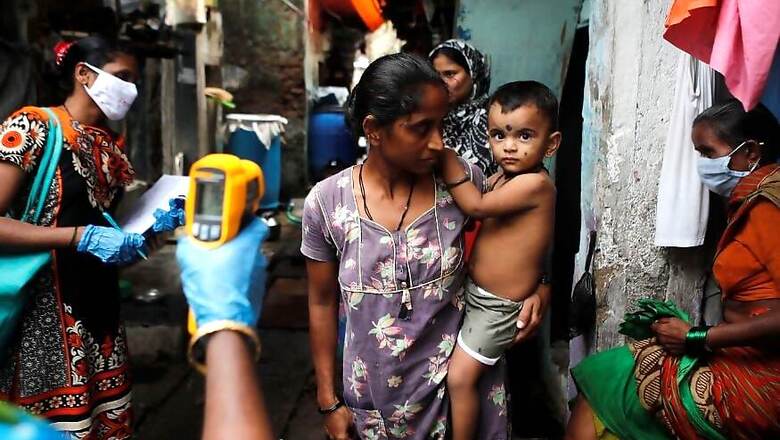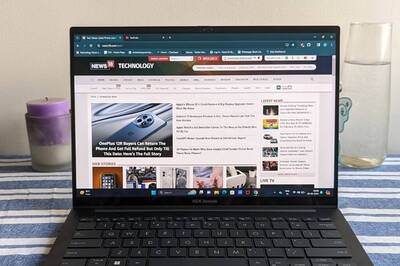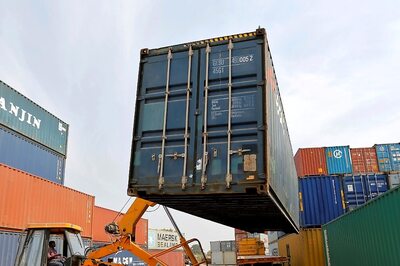
views
In August, the Brihanmumbai Municipal Corporation (BMC) will carry out a follow-up of the sero survey which done in three municipal wards of Mumbai during the first fortnight of July.
According to the result of the survey that was released on Wednesday, out of the 6,936 samples collected, 57% people sampled in slums and 16% in non-slum areas were exposed to coronavirus.
A sero survey provide insights into the spread of the infection and development of antibodies in the general population. An antibody is a protein produced by white blood cells and used by the immune system to identify and neutralise foreign objects such as bacteria and viruses.
The next round of sero survey, will be done in the same municipal wards - Matunga, Chembur and Dahisar - said BMC officials. It will followed-up by another in a smaller group of the same people who were tested for antibodies in July, said Dr Daksha Shah, Deputy Executive Health Officer, BMC.
“We have planned another round of the survey in August and then a smaller subset will be tested again three months down the line," Shah said.
"The follow up rounds will help us understand if the spread of infection and antibody levels remain the same and will also shed light on the prevalence of infection. It will be interesting to see the infection trajectory,” Shah said.
However, Shah cautioned that the survey results were not representative of the entire city for now. "But it might be comparable to wards that have a similar population, similar density and could be used for projections. This could lead to another survey across all 24 municipal administrative wards, as well,” she said.
The survey was carried out in the first two weeks of July and wards ranging from a high and low caseload were selected.
Shah said that the civic body also wanted to choose wards from different geographical areas. “Thus we chose one each from eastern and western suburbs and one from the Island city area.” Chembur lies in the M-West ward, Matunga in F-North and Dahisar in R-North.
Dr Ullas Kolthur-Seetharam, Professor, Biophysics, Biochemistry and Molecular Biology, at the Tata Institute of Fundamental Research (TIFR) said that to ensure unbiased sampling, general population from active containment zones and people who were in quarantine were excluded. He was involved in designing the Mumbai sero-survey.
“The idea was to do a cross-sectional study. Based on BMC data of that period, Matunga, Chembur and Dahisar had high, medium and low caseload respectively. They represented geographically separate regions. We did random sampling and samples were collected from every fourth household in slums and every fourth building in non-slum areas,” he said.
Dr Kolthur-Seetharam said that even as the preliminary results showed a wide exposure in slums, it would be premature to arrive at conclusions about herd immunity.
Dr Shah said that wider surveys would help in creating effective strategies to be carried out by the civic body. “The results reaffirm that social distancing and wearing of masks is here to stay and nobody can or should lower their guard."




















Comments
0 comment